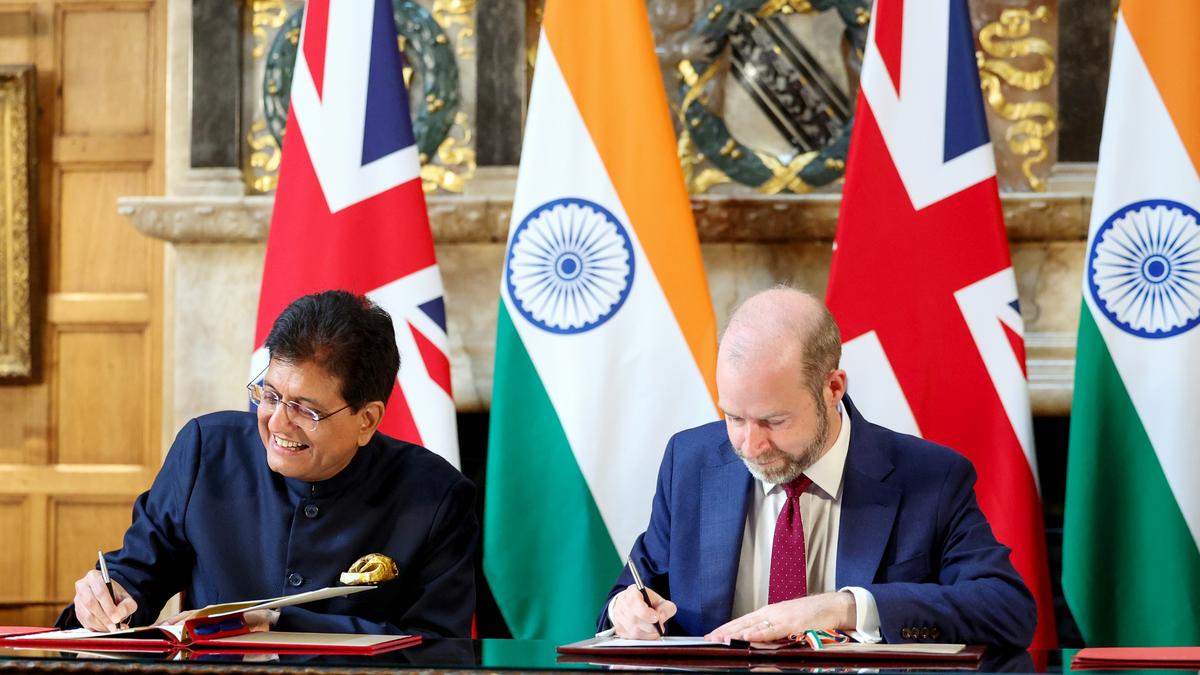Now Reading: India-UK Trade Pact: Duty-Free Access Poised to Boost Foreign Investment
-
01
India-UK Trade Pact: Duty-Free Access Poised to Boost Foreign Investment
India-UK Trade Pact: Duty-Free Access Poised to Boost Foreign Investment

Speedy Summary
- India and the UK have signed the Complete Economic and Trade Agreement (CETA) on July 24, 2025.
- The agreement includes a chapter on “Rules of Origin,” mandating that only goods significantly processed or made in India or the UK can benefit from reduced tariffs.
- Local sourcing norms under CETA aim to promote manufacturing in India and deter re-exported goods, ensuring preferential tariffs apply only to genuine Indian or British products.
- With 99% of tariff lines opened by the UK, Indian officials believe this deal offers notable potential for Foreign Direct Investment (FDI), especially in sectors like precision engineering and industrial components manufacturing.
- Industry experts foresee increased regulatory alignment, joint ventures, technology transfers, and investment predictability as outcomes of this trade deal.
- Specific industries expected to benefit include oil & gas instrumentation,process automation,IT services,aerospace technologies (e.g., Rolls-Royce projects), and manufacturing infrastructure.
Indian Opinion Analysis
The signing of CETA between India and the UK marks a significant step forward in bilateral economic relations. By incorporating stringent “Rules of Origin” provisions into its framework, the agreement prioritizes authentic value-added production within both nations. This could incentivize manufacturers to invest more heavily in India’s domestic industries rather than relying on imports for re-export purposes.
The focus on local production may catalyze FDI inflows as international companies seek to leverage India’s advantages under zero-duty exports. Precision engineering stands out as particularly promising due to existing expertise within India aligned with new opportunities created by regulatory harmonization. However, challenges might persist regarding India’s ability to ramp up advanced manufacturing quickly enough to fully capitalize across all tariff sectors opened by the UK.
In essence,CETA enhances predictability for investors while positioning both nations as stronger partners for global supply chains-a long-term win if balanced implementation fosters inclusive growth domestically.

























